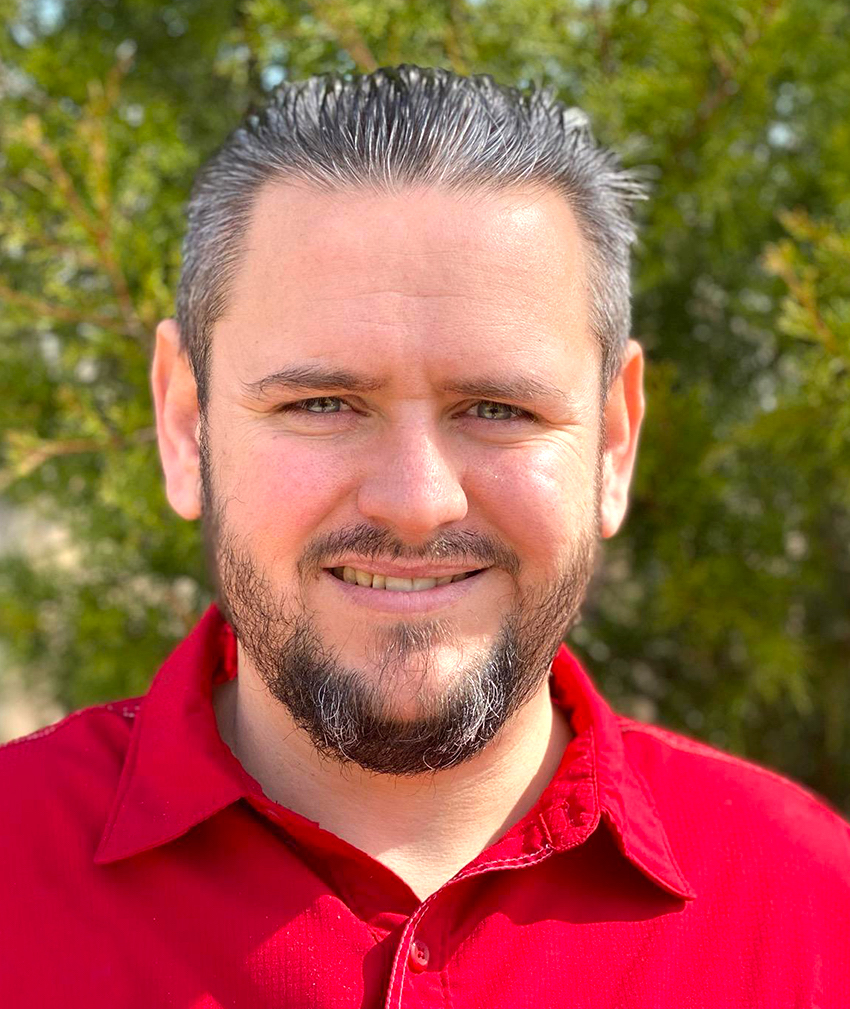ADA – If you’ve watched a televised COVID-19 press conference recently by the Oklahoma governor or Oklahoma City mayor, you’ve probably noticed the energetic, expressive American Sign Language interpreter nearby.
That is East Central University double-graduate Jimmy Mitchell. He has made quite a name for himself around the state because of his unique, eye-catching interpreting style, which utilizes facial expressions as much as hand signs.
“Facial expressions are the tone of the speaker’s voice,” said Mitchell, who has signed for Gov. Kevin Stitt and OKC Mayor David Holt. “When I’m talking about COVID-19, I’ll have my eyebrows frowned. That normally means things are being said with seriousness and concern. If a deaf person sees someone with their eyebrows down, they know it’s serious.”
Mitchell, who earned his bachelor’s and master’s degrees in Rehabilitation Counseling from ECU, practically stumbled into the high-profile role as ASL interpreter for two of Oklahoma’s highest-ranking civic leaders.
“The agency I used to work for, called Sign Language Resource Services, hosted a training session in March that focused on interpreting live on camera for natural disasters,” Mitchell said. “Most of it was focused on weather – tornadoes, floods. I attended the training, picked up a few things, and went home thinking nothing more of it.”
Just a few days afterward, while conducting his daily business as a vocational rehabilitation counselor, Mitchell received an urgent message.
“I received a text from SLRS asking if I could be at the state Capitol in 35 minutes, ready to interpret for the governor about the COVID-19 pandemic,” he said. “At first, I thought it was a joke or some kind of a test run. It wasn’t. I was totally unprepared. They convinced me to try to make it anyway, so challenge accepted.”
On his way to the assignment, Mitchell rushed to buy and borrow the articles of clothing he would need to appear at such an important news conference with a potentially large audience. He scrambled his way to the Capitol, hurried to make a wardrobe change in the parking lot, and was immediately escorted by Gov. Stitt’s security detail to the location of the press event.
“I had maybe five minutes to tune up with vocabulary, current events, and signals before we went live,” Mitchell said. “Then it was showtime. It was a heck of an experience.”
His initial experience with the City of Oklahoma City wasn’t quite as rushed.
“With Mayor Holt, I had the chance to visit with him and his aide,” Mitchell said. “He is a really nice guy, as is his aide. They were very curious how our interpreting team worked, and we conversed about that. Like Gov. Stitt’s staff, his people were very accommodating to us.”
Mitchell graduated high school from Oklahoma School for the Deaf in Sulphur, where he met Trudy, his wife of almost 20 years. Trudy is the current Student Life director at OSD. Both are proud Tigers.
“I love ECU,” Mitchell said. “I was able to graduate with my BS at ECU in 2006, then support my wife getting her BS there as well. We did the whole dance again with our master’s programs, with me getting mine in 2013, then hers. ECU is not a ‘my way or the highway’ kind of university. They seem to be more flexible and accommodating with your needs.”
Mitchell said ECU has a “very good program for the deaf and hard of hearing” and credits the University for “knowing what they’re doing” when working with people in that field.
And as for his interpretive style, replete with fascinating facial expressions, that’s all natural, Mitchell said.
“Many people don’t know there are times when we can interpret a message simply by a facial expression or movement,” he said. “Facial expressions are paramount and very powerful when it comes to ASL. It’s a visual and living language. When I talk about something, I have to paint a picture to ensure that the community can picture it in their heads as I sign.”
In the meantime, like everyone else, Mitchell’s full-time counseling job has been altered by the coronavirus pandemic.
“My day-to-day has changed with me now working from home,” he said. “The majority of my clients are deaf and hard of hearing and I have more frequent video calls with them instead of meeting them in person. It hasn’t been smooth, but we’re working on that.”
-ECU-

